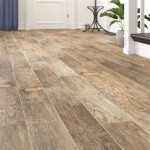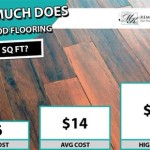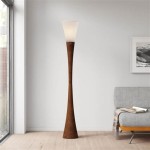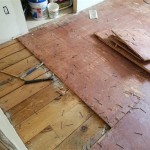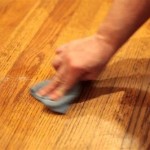Wood Filler For Gaps In Hardwood Floors
Hardwood floors are a beautiful and durable flooring option, but they can sometimes develop gaps between the planks. These gaps can be caused by a variety of factors, such as changes in temperature and humidity, or simply the natural aging of the wood. While small gaps are not typically a problem, larger gaps can allow dirt and debris to accumulate, which can damage the floor. In addition, gaps can create a tripping hazard, especially for small children and the elderly.
There are a few different ways to fill gaps in hardwood floors. One option is to use a wood filler. Wood filler is a paste-like material that is available in a variety of colors to match the color of your floor. To use wood filler, simply apply it to the gap with a putty knife and smooth it out. Once the wood filler has dried, you can sand it down to create a smooth surface.
Another option for filling gaps in hardwood floors is to use a caulk. Caulk is a flexible material that is available in a variety of colors. To use caulk, simply apply it to the gap with a caulk gun and smooth it out. Once the caulk has dried, you can paint it to match the color of your floor.
If the gaps in your hardwood floor are large, you may need to use a more permanent solution, such as replacing the damaged planks. This is a more involved process, but it will result in a more durable repair.
No matter which method you choose, it is important to make sure that the gap is properly filled and sealed to prevent further damage to your floor.
## Tips For Filling Gaps In Hardwood FloorsHere are a few tips for filling gaps in hardwood floors:
*Choose the right wood filler or caulk.
There are a variety of wood fillers and caulks available on the market, so it is important to choose one that is specifically designed for use on hardwood floors. *Prepare the gap.
Before you apply wood filler or caulk, it is important to clean the gap and remove any dirt or debris. This will help the wood filler or caulk to adhere properly. *Apply the wood filler or caulk.
Apply the wood filler or caulk to the gap with a putty knife or caulk gun. Be sure to fill the gap completely and smooth it out. *Allow the wood filler or caulk to dry.
Allow the wood filler or caulk to dry completely before sanding or painting. *Sand or paint the wood filler or caulk.
Once the wood filler or caulk has dried, you can sand it down to create a smooth surface. If you are using caulk, you can also paint it to match the color of your floor. ## Additional TipsHere are a few additional tips for filling gaps in hardwood floors:
*If the gap is large, you may need to use a backer rod to fill the gap before applying wood filler or caulk.
A backer rod is a flexible foam rod that is available at most hardware stores. *If the gap is located in a high-traffic area, you may need to use a more durable wood filler or caulk.
There are a variety of heavy-duty wood fillers and caulks available on the market. *If you are not comfortable filling the gaps in your hardwood floor yourself, you can hire a professional to do it for you.

How To Fill Gaps In Pine Boards Expert Techniques For A Seamless Look Mr Sander

How To Fill In Gaps Between Hardwood Flooring With Wood Filler

Diy Guide Gap Filling In Wood Floors To Re Their Beauty

Woodfiller For Hardwood Floors Advice

Filler Facts Wood Isn T Always The Right Solution Rosebud Floors

Woodfiller For Hardwood Floors Advice

3 Simple Ways To Fill In Gaps Wooden Floors Wikihow

4 Tips That Will Help You Get Rid Of Wood Flooring Gaps Esb

Should You Fill Gaps On A Timber Floor

Filling Huge Gaps In Hardwood Floors Doityourself Com Community Forums
See Also

